The Latest Archaeological Discoveries in Israel
Israel often exceeds the expectations of Christian travelers. Those who view it as an arid desert are amazed by the lush, verdant beauty of places like the Galilee region. Perhaps the biggest surprise for Christian travelers is the amount of ongoing archaeology they encounter in Israel.
From the heart of Jerusalem to caves near the Dead Sea, Israel is home to dozens and dozens of live archaeological digs. History is being uncovered around every corner—and many of these finds reinforce the truth of the Bible.
Here are 12 of the most recent archaeological discoveries catching our attention:
- Shark Fishing: Early in 2023, the Israel Antiquities Authority announced the discovery of a large bronze fish hook. Nearly three inches long, the hook is thought to have been used in the coastal village of Ashkelon to capture large fish—possibly including sharks! At 6,000 years old, it’s one of the oldest metal fish hooks ever discovered. While it is common knowledge that the disciples were fishermen, Old Testament books, like Amos, also mention fish hooks (Amos 4:2).
- Ivory Fragments: In the fall of 2022, Jerusalem archaeologists unearthed around 1,500 ivory fragments that date to the time of the First Temple. These fragments are the remains of at least 12 square “plaques” and illustrate what ivory-inlaid furniture—like Solomon’s throne from 1 Kings 10:18—may have looked like.
- YHWH: In March 2022, a small lead “curse” tablet with an ancient Hebrew inscription was found in excavations on Mount Ebal, where Joshua built an altar (Joshua 8:30). Dated to the 13th century B.C., the tablet uses the name YHWH (“Yahweh”) from Exodus 3:14. It is the oldest inscription of the divine name ever discovered.
- 2,700-Year-Old Toilet: In 2021, a dig by the Israel Antiquities Authority and the City of David uncovered a building that once overlooked the Temple Mount. Part of an ancient royal estate from the seventh century B.C., it includes a very rare private toilet structure—a carved rock toilet over a deep septic tank.
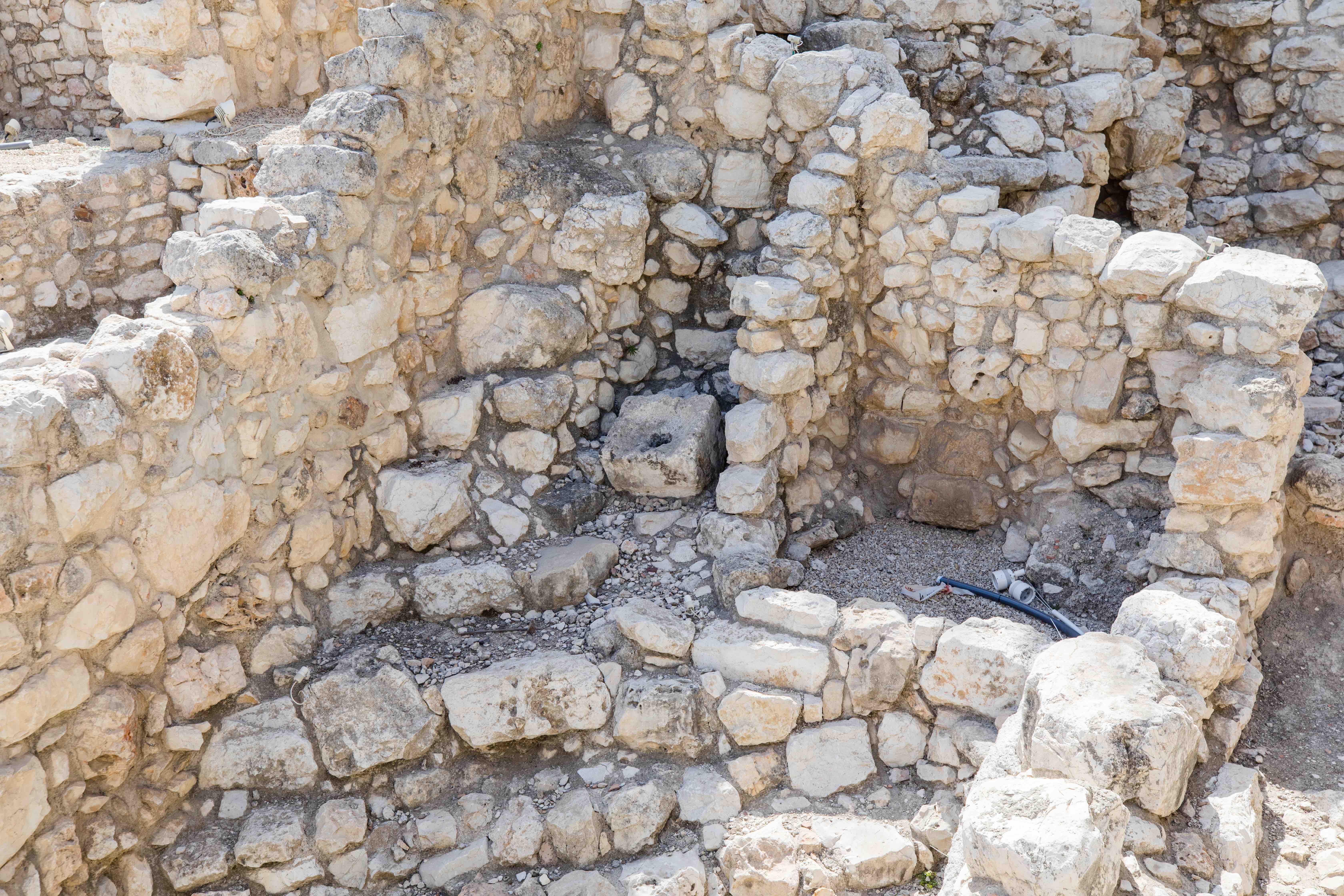
7th century toilet discovered at an ancient royal estate - New Dead Sea Scroll Fragments: In a cave near the Dead Sea, a 2021 excavation revealed ancient coins, a prehistoric basket and Greek versions of the Old Testament books of Nahum and Zechariah. This excavation produced more than 80 scroll fragments from the first century B.C., many of which showed biblical texts. This represented one of the biggest biblical discoveries in years.
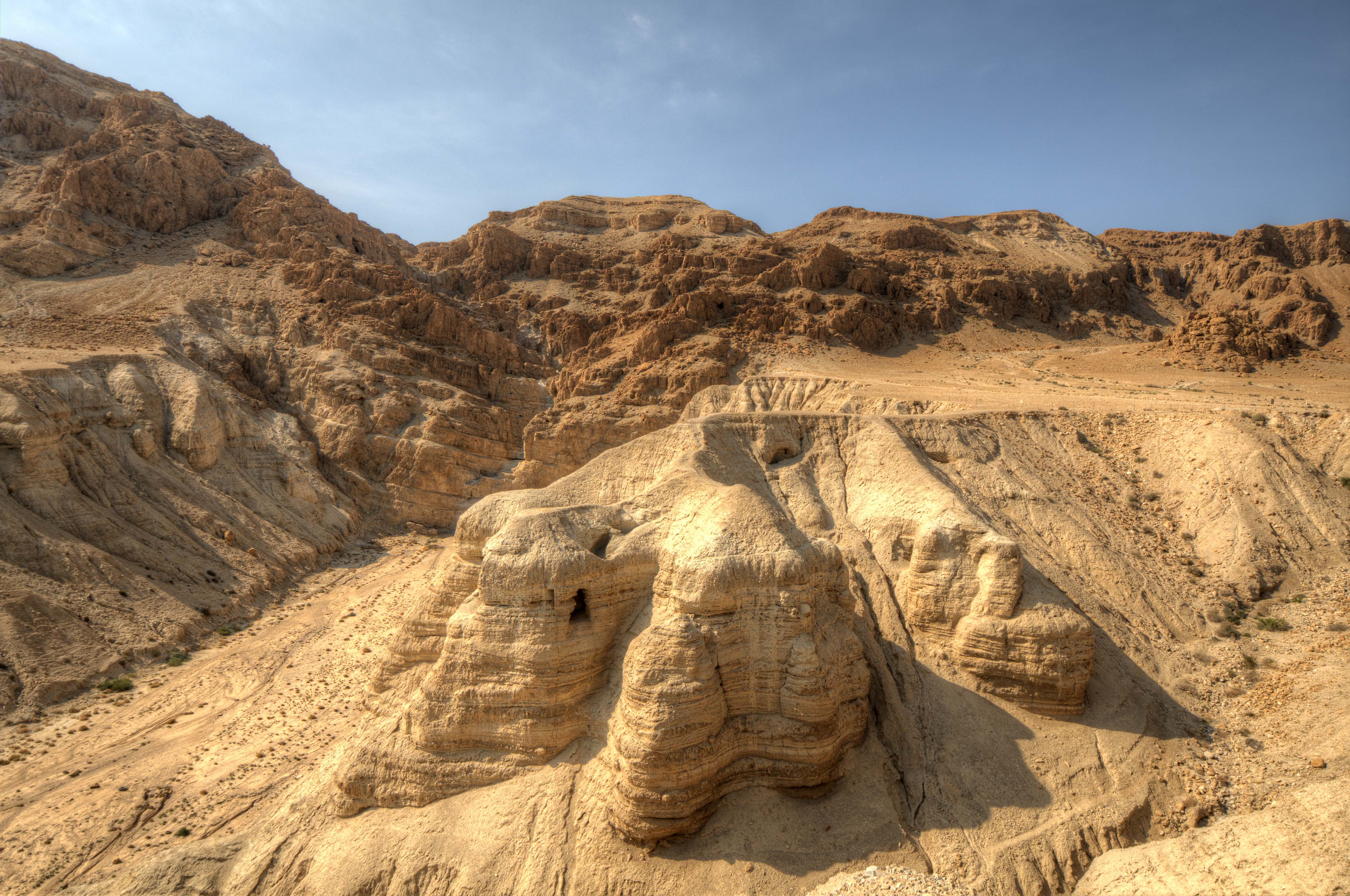
Cave of the Dead Sea Scrolls, known as Qumran Cave 4 - Crusader Sword: A scuba diver off the coast of Israel found a three-foot-long blade, complete with a long hilt, in the shifting sand on the ocean floor. Made of iron, it likely belonged to a Christian knight during the Crusades. This was discovered in 2021.
- Royal Mansion: In 2020, excavations by the Israel Antiquities Authority on Jerusalem’s Armon Hanatziv (Commissioner’s Palace) Promenade revealed a royal building that partially survived the destruction of Jerusalem by the Babylonians in the fifth century B.C.
- Pilgrim’s Road: While repairing a burst pipe underground in a Jerusalem neighborhood, construction workers found evidence of a limestone pathway more than a third of a mile long. Known as the Pilgrimage Road, it is thought to have been the main route taken by Jewish pilgrims to ascend from the Pool of Siloam to the Temple Mount during festivals.
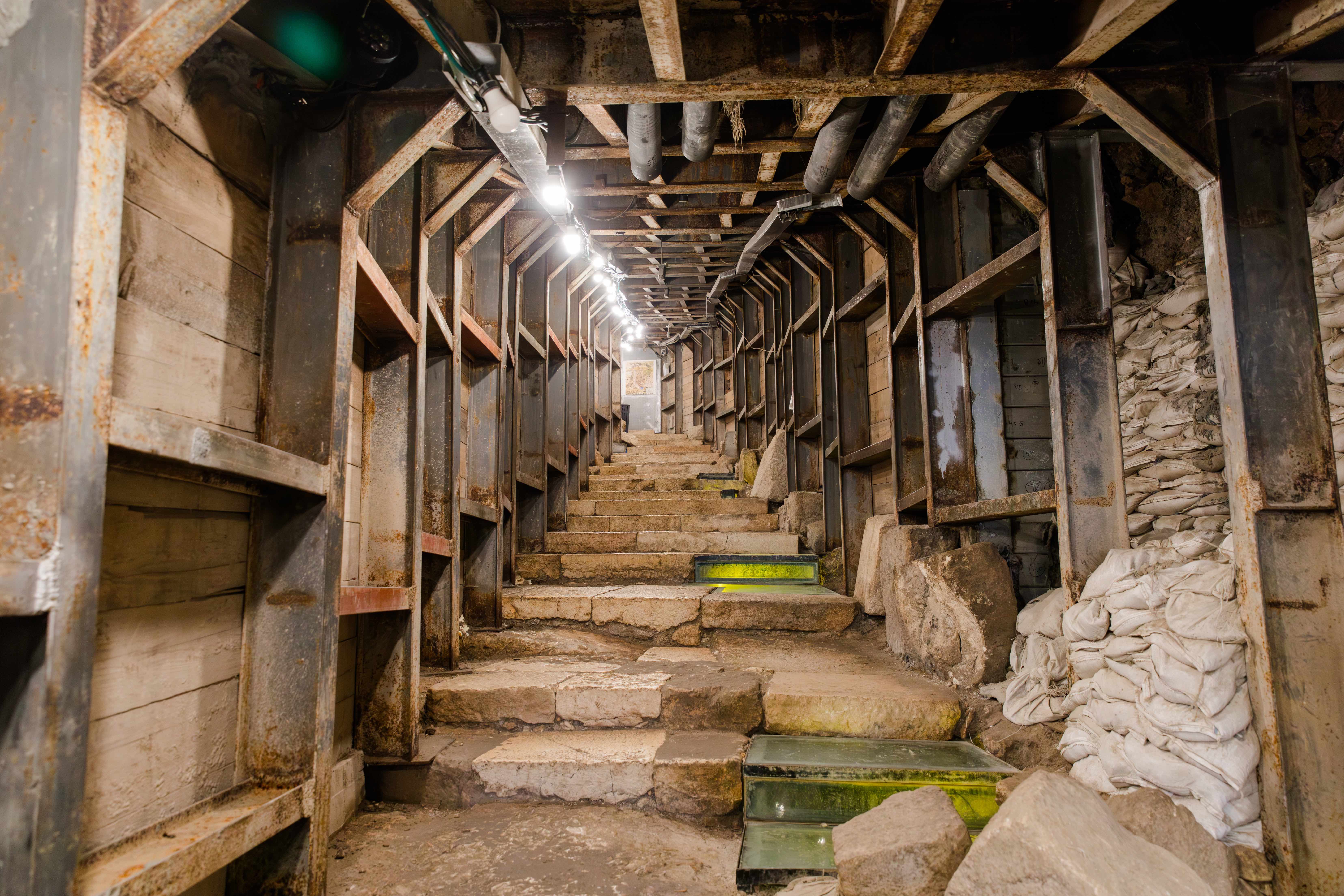
Steps leading through the Pilgrim’s Road under a Jerusalem neighborhood - Ancient Mosaics: A fourth-century synagogue mosaic was revealed in 2018 at the site of the ancient village of Huqoq. Archaeologists found a mosaic of a young boy leading an animal with the words “a small child shall lead them.” Previous mosaics in this location depicted scenes from the life of Samson.
- Physical Evidence of Ancient Bethlehem: In 2012, in what once was the center of ancient Jerusalem, the Israel Antiquities Authority excavated a dried clay seal known as a “bulla.” Used to identify transactions in the ancient world, this bulla was inscribed with an ancient Hebrew script reading “From the town of Bethlehem to the King.” It likely accompanied a tax payment from as early as the eighth century B.C. Outside of the Bible, this is the earliest-known identification of the existence of Bethlehem.
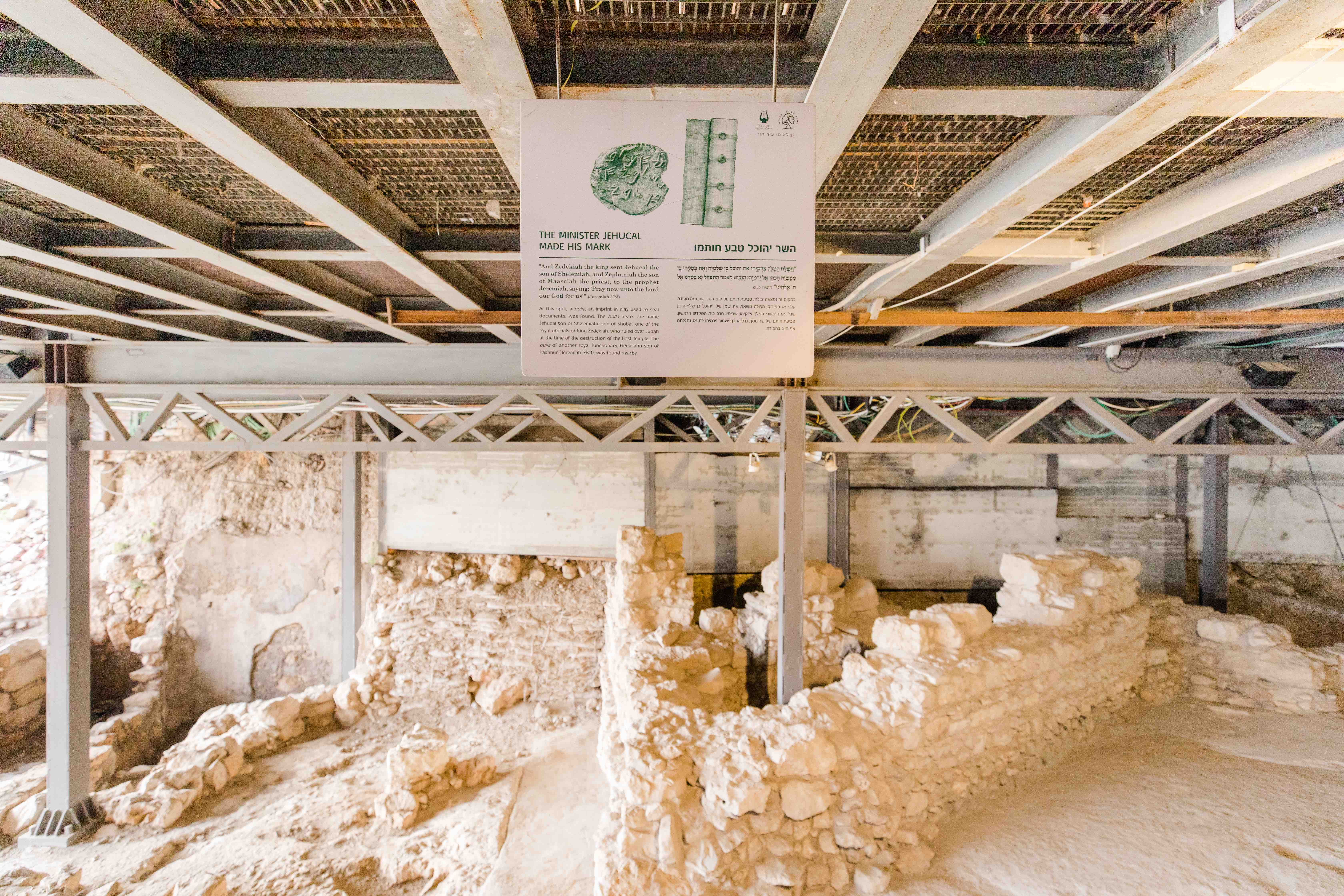
The archaeological site in the City of David where the bulla was discovered - Hebrew Inscriptions: In late 2015, the University of Haifa announced the discovery of a marble slab on the shores of Lake Kinneret. It was the first evidence related to the ancient community of Kursi, where Jesus restored two demon-possessed men and drove the demons into pigs (see Matthew 8).
- Magdala: On the western shore of the Sea of Galilee, a huge archaeology site known as Magdala is shedding light on the culture of Jesus’ ministry in that region. The excavations of this thriving village—the hometown of Mary Magdalene—have revealed a synagogue, marketplace, residential buildings, frescoes, a harbor and a purification bath. The Magdala remains were first discovered in 2009, and its excavation has been ongoing.
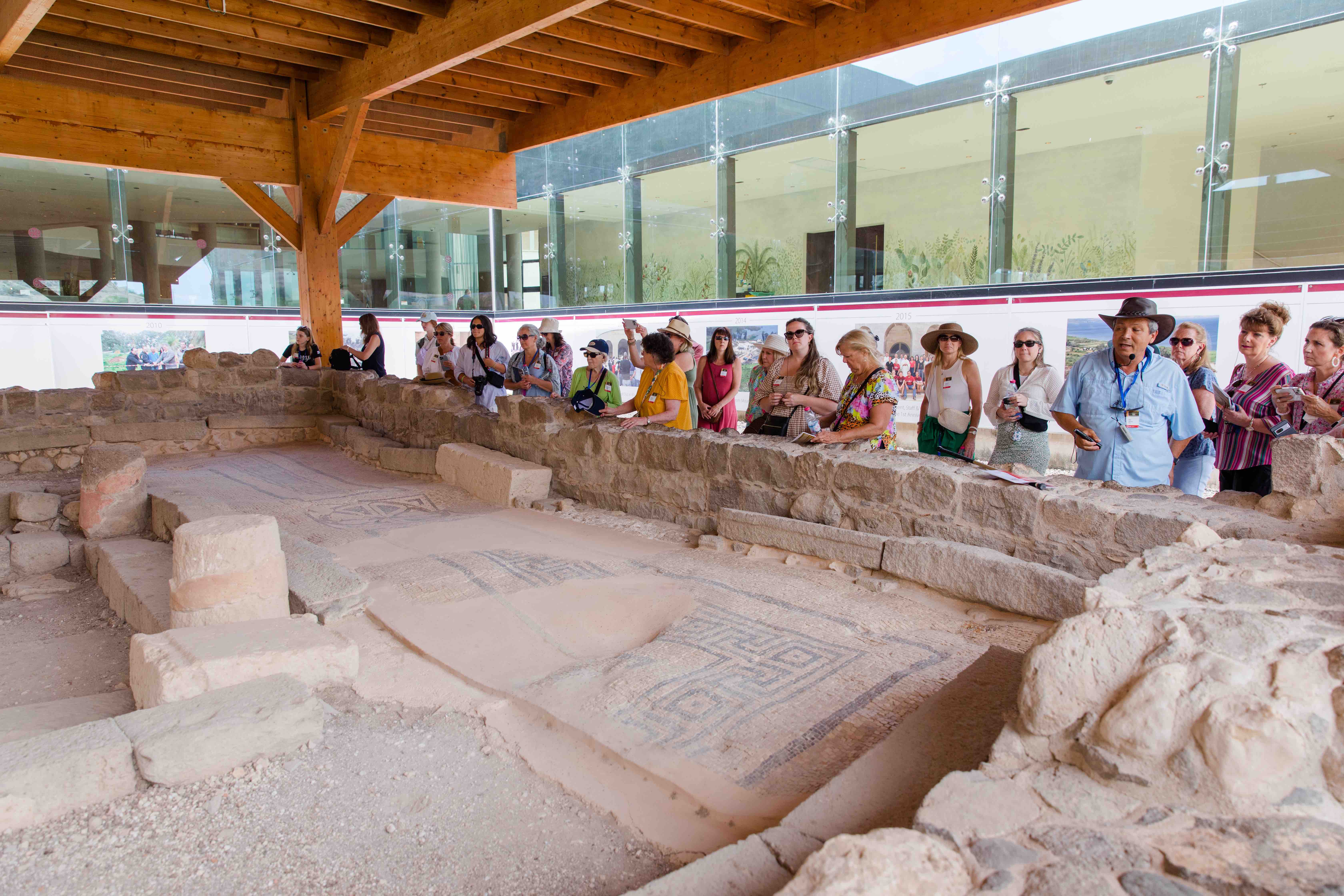
Inspiration Travelers visiting the archaeological site of Magdala
These represent just a tiny selection of the surprises awaiting Christian travelers in Israel. From a tiny “bulla” to an entire village, archaeologists are uncovering remarkable artifacts and structures every day. Each of these discoveries contributes to the history of ancient Israel and the narrative of the Old and New Testaments.
While not everyone may stumble upon ancient relics, a journey through Israel holds countless personal discoveries. It is a place where history intertwines with culture and faith, a living museum that allows travelers to connect with the days of Jesus and his disciples.
What personal discoveries does God have waiting for you in Israel?






